The Role of AI in Personalized Healthcare
Additionally, drug discovery and other biomedical research, genomics, personal medicine, medical imaging, medical equipment, better patient care, and the development of new, modernized clinics are all made possible by AI-powered data-driven insights and process improvements that progress healthcare.
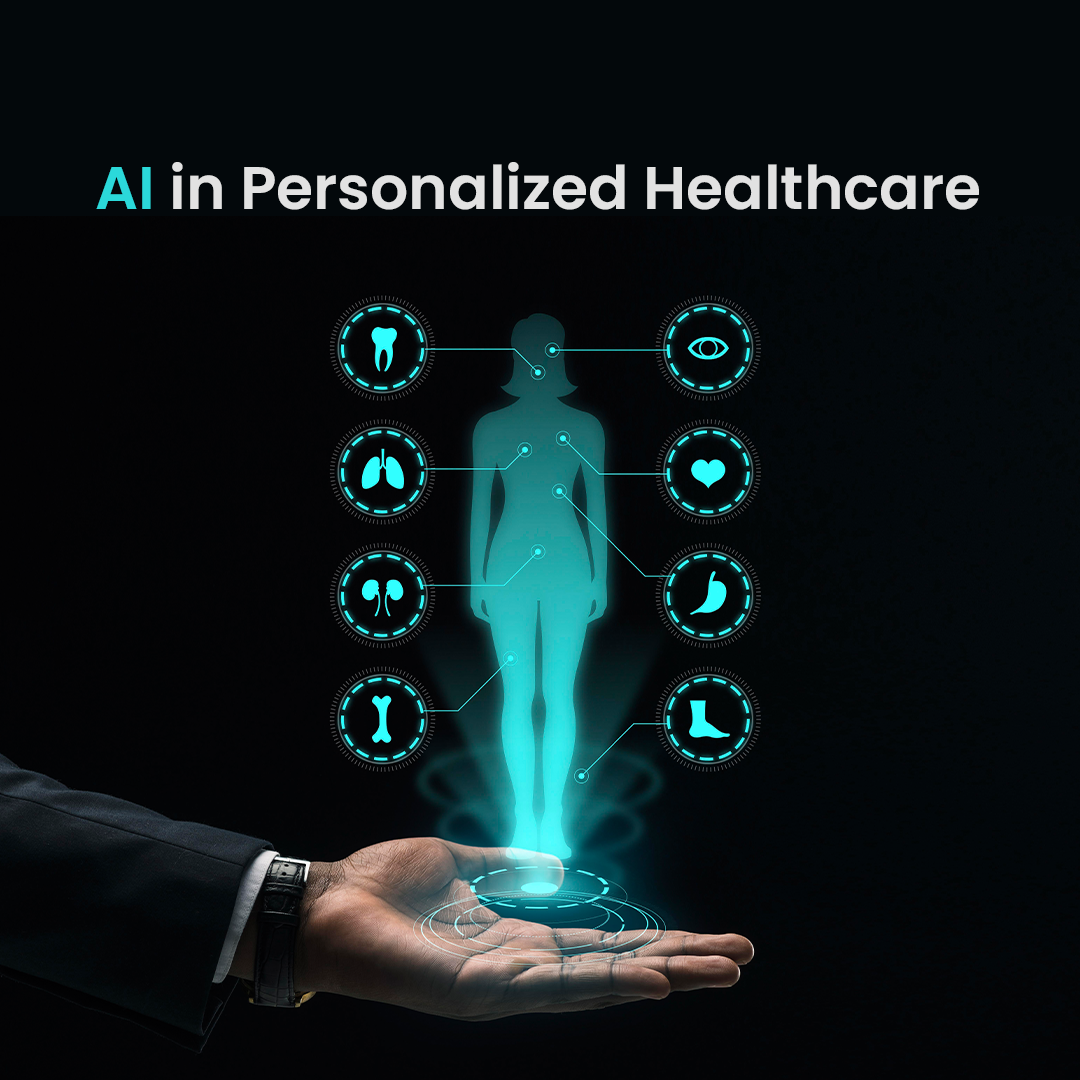
Lack Real-Time Patient Data? Our Digital Healthcare Services Provide Instant Access to Actionable Healthcare Information

“Given how important data-intensive assays are to revealing appropriate intervention targets and strategies for personalizing medicines, AI can play an important role in the development of personalized medicines at all relevant phases of the clinical development and implementation of new personalized health products, from finding appropriate intervention targets to testing them for their utility.”- NCBI
Understanding Personalized Healthcare: Overview
A significant change in the way medical care is provided and customized for each patient is represented by personalized healthcare, also referred to as precision medicine or individualized medicine. Treating every patient as an individual with distinct genetic, lifestyle, environmental, and clinical features is the central idea of this approach. Personalized solutions that maximize results, reduce risks, and improve patient satisfaction are developed by utilizing cutting-edge technologies and data-driven insights, as opposed to a one-size-fits-all approach to therapy and intervention.
A few of its essential elements consist of.
- Early Detection & Prevention: Doctors can detect dangers and take preventative measures, potentially preventing the start of diseases or treating them more successfully in their early stages, by continuously monitoring and analyzing data.
- Genetic & Genomic Information: This process involves examining the genetic basis of a patient, including a detailed analysis of their DNA and genetic constituents. This genetic data repository contains important information on a person’s susceptibility to certain diseases, possible drug interactions, and natural propensities toward various medical disorders.
- Clinical Data & Medical History: Doctors can make informed decisions about treatment options, pharmaceutical choices, and preventative actions that are specific to each patient’s distinct health route because of electronic health data and patient medical histories.
How to Use AI to Create Personalized Physical Therapy Treatment Plans
The use of AI in personalized healthcare could greatly improve the efficacy, efficiency, and personalization of treatment plans for physical therapy. How to do it is as follows:
- Progress Tracking: With AI, monitoring a patient’s recuperation process can be automated, eliminating the need for human judgment. By allowing for necessary modifications to the treatment plan, real-time tracking maximizes the efficacy of each session.
- Predictive Analysis: Based on recent data trends, AI can project recovery durations and identify possible threats. These forecasts help patients set reasonable expectations and goals, which raises their level of satisfaction overall.
- Data-Driven Diagnostic Insights: AI systems can evaluate patient data instantaneously, giving therapists insightful diagnostic information. Therapists can create individualized regimens that cater to the unique demands and situations of their patients because of this insight.
- Automated Patient Engagement: By automating the patient outreach procedure, artificial intelligence can ensure regular updates on the patient’s condition and advancement. Better patient adherence to recommended treatment regimens results from this enhanced participation.
Improve Diagnosis Accuracy? Our AI Clinical Support Systems Enhance Precision in Patient Care Decisions
Revolutionizing Treatment Planning through AI Algorithms
Improving the treatment plans is one of the key areas where AI is having a tremendous influence. Conventional diagnostic techniques mostly rely on the subjective and human error-prone manual interpretation of medical test results. However, healthcare workers may use effective tools to increase diagnosis accuracy and enhance patient outcomes by integrating AI algorithms.
The following are some ways that AI is transforming treatment plans:
 1. Patient Outcome Prediction
1. Patient Outcome Prediction
By using predictive analytics, medical practitioners can better anticipate patient outcomes, create individualized treatment strategies, and enhance patient care. AI can forecast patient reactions to various treatments by assessing patient data, which lowers the chance of unfavorable occurrences and improves patient outcomes. It, for instance, can assist medical practitioners in identifying patients who are at a high risk of returning to the hospital, allowing them to create focused interventions and lower readmission rates. Predictive analytics can also assist medical practitioners in minimizing the chance of negative drug reactions and optimizing medication dosage.
Additionally, healthcare providers can more quickly and simply convey complicated medical data to patients and their families by using natural language generation technologies to produce simple and succinct patient reports. This will increase patient knowledge and participation. Healthcare workers can provide more effective, efficient, and patient-centered care by utilizing predictive analytics and natural language generation, which will ultimately improve patient outcomes and lower healthcare costs.
2. Disease Risk Assessment & Prevention
By assisting in the identification of high-risk patients, AI in personalized healthcare helps providers create focused interventions and preventive measures. Predictive models can identify early warning indicators of chronic conditions including diabetes, cardiovascular disease, and cancer by evaluating patient data. Predictive analytics, for example, can analyze blood pressure, weight, and family history to identify people who are at risk of getting diabetes. This makes it possible for medical professionals to create individualized preventative programs that include medication and lifestyle modifications to stop or postpone the onset of diabetes.
AI can also be used to identify people who are at risk of cardiovascular disease, which enables medical professionals to create customized interventions that lower the chance of a heart attack or stroke. It can also be used to identify cancer early on, which helps medical professionals create individualized treatment programs and enhance patient outcomes. Healthcare professionals can provide patient-centered treatment, lessening the burden of chronic illnesses, and enhancing overall health outcomes by utilizing predictive analytics.
3. Drug Discovery & Development
Drug discovery and development are greatly aided by artificial intelligence, which helps researchers find possible targets for new drugs, forecast their efficacy, and streamline the drug development process. AI in personalized healthcare can find patterns and connections in massive datasets, which speeds up the creation of novel treatments and therapies. For example, researchers can benefit from predictive analytics by:
- Discover potential drug targets through advanced analysis of gene expression patterns and protein structure modeling.
- Simulate drug interactions and pharmacokinetics to accurately predict efficacy and optimize treatment outcomes.
- Streamline drug development by identifying process bottlenecks and uncovering opportunities for enhanced efficiency.
- Create personalized medicine strategies by leveraging patient-specific data and genetic profiles for tailored treatments.
- Enhance drug safety by proactively predicting side effects and toxicities through advanced risk modeling and simulation.
4. Personalized Treatment Recommendations
To provide individualized therapy suggestions, AI algorithms examine patient-specific data, including genetic information, medical history, lifestyle factors, and treatment outcomes of patients with similar conditions. Healthcare providers can customize treatment regimens to meet each patient’s specific needs by using AI-powered systems, which consider various characteristics and trends that may impact treatment outcomes.
5. Predictive Analytics for Treatment Response
To forecast treatment responses and outcomes, AI systems examine patient data, including clinical records, test findings, and real-time monitoring data. AI-driven systems can determine which patient subgroups are more likely to react favorably or unfavorably to therapies by utilizing predictive analytics. With this information, medical personnel can make well-informed judgments, adjust treatment regimens, and enhance patient outcomes by selecting the most appropriate therapies for individual patients.
6. Electronic Health Records Analysis
Beyond the patient’s experience, artificial intelligence has enormous potential because it is essential to medical diagnosis. AI-powered diagnostics can greatly increase the precision and speed of diagnosing medical diseases, which will ultimately improve patient outcomes. Examples of these diagnostics include image analysis, pathology, and EHR analysis.
AI-powered EHR analysis can assist healthcare practitioners in gaining important insights from the wealth of patient health data, including medical data, that is stored in electronic health records. AI can facilitate early diagnosis and treatment of a range of medical diseases by seeing patterns and trends in patient data.
7. AI-assisted Patient Scheduling
Both patients and healthcare providers can find long waiting periods and ineffective appointment scheduling to be aggravating. AI-assisted patient scheduling minimizes wait times and improves patient flow in hospitals by using algorithms to evaluate patient data and identify the best appointment times. In addition to improving the patient experience, this helps hospitals make better use of their resources, which increases their ability to attend to patients’ needs and provide superior care.
For patients, navigating the healthcare system can be difficult and intimidating. Virtual health assistants help patients by answering questions and assisting them with their healthcare journey. Virtual health assistants encourage a more proactive approach to healthcare management by providing patients with real-time support and information, enabling them to take charge of their health and well-being.
Struggling With Data Overload? Our AI Solutions Simplify Data for Personalized Healthcare Insights
Future Directions & Opportunities for Gen AI in Healthcare
There are significant prospects for further integrating Gen AI in healthcare as technology develops.
- Explainable AI: Gaining the confidence and approval of medical professionals and patients requires the capacity to articulate the reasoning behind the decisions made by AI systems. The goal of explainable AI research is to create algorithms that can transparently explain their predictions. Because of its interpretability, AI models’ recommendations can be understood and verified by healthcare professionals, resulting in a collaborative and trustworthy environment between humans and machines.
- Advancements in Genomic Medicine: AI systems have demonstrated promise in the analysis of genomic data to enable precision medicine, discover possible therapeutic alternatives, and forecast the risk of disease. AI has a big part to play in utilizing genomics’ potential for customized healthcare as the cost of genome sequencing keeps going down. Large-scale genomic data can be analyzed by AI algorithms, which can also identify genetic markers for various diseases and offer customized treatments based on each person’s genetic profile.
- Integration of Multi-Modal Data: By combining information from several sources, including genetics, clinical data, environmental variables, and social determinants of health, AI systems can improve their predictive power. Artificial Intelligence can provide more precise and comprehensive insights for individualized care by considering a wider variety of data. A thorough understanding of each patient’s health trajectory can be obtained by integrating data from wearable technology, electronic health records, and patient-reported outcomes.
Wrapping Up
The use of AI in personalized healthcare is revolutionizing the industry and paving the way for more accurate, focused, and efficient medical care. Healthcare providers can enhance patient outcomes and provide more precise diagnoses by utilizing AI algorithms for data integration, predictive analytics, real-time monitoring, and image recognition. The applications of AI in personalized healthcare are vast, despite challenges about ethics, regulations, generalizability, human-machine collaboration, and data quality. Unlocking AI’s full potential to transform customized healthcare and deliver individualized treatment will require ongoing research, stakeholder collaboration, and ethical considerations.
NextGen Invent’s clinical decision support system software solutions and custom AI healthcare mobile app development services empower businesses to deliver personalized healthcare at scale, improving patient outcomes and operational efficiency. Unlock the potential of AI to revolutionize your healthcare practice. Contact us today to explore tailored solutions for your business needs and transform patient care with AI-driven innovations.
Frequently Asked Questions About AI in Personalized Healthcare
Related Blogs
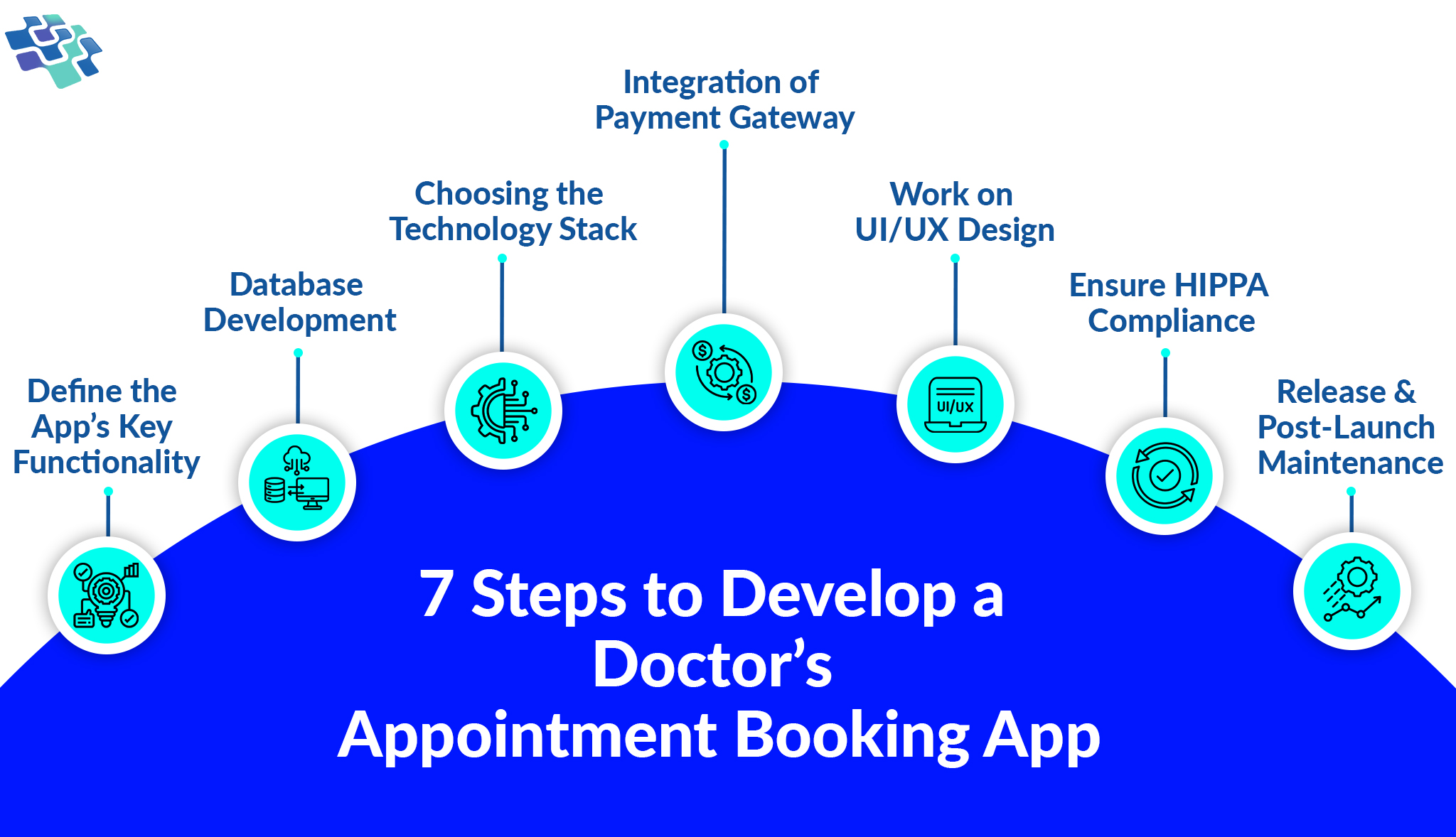
How to Develop a Doctor Appointment App in 2024?
By the end of 2024, the US market for online medical consultations is projected to generate $5.06 billion in revenue. From 2024 to 2028, this is anticipated to expand at a 4.44% annual pace, with a market size of $6.02 billion.
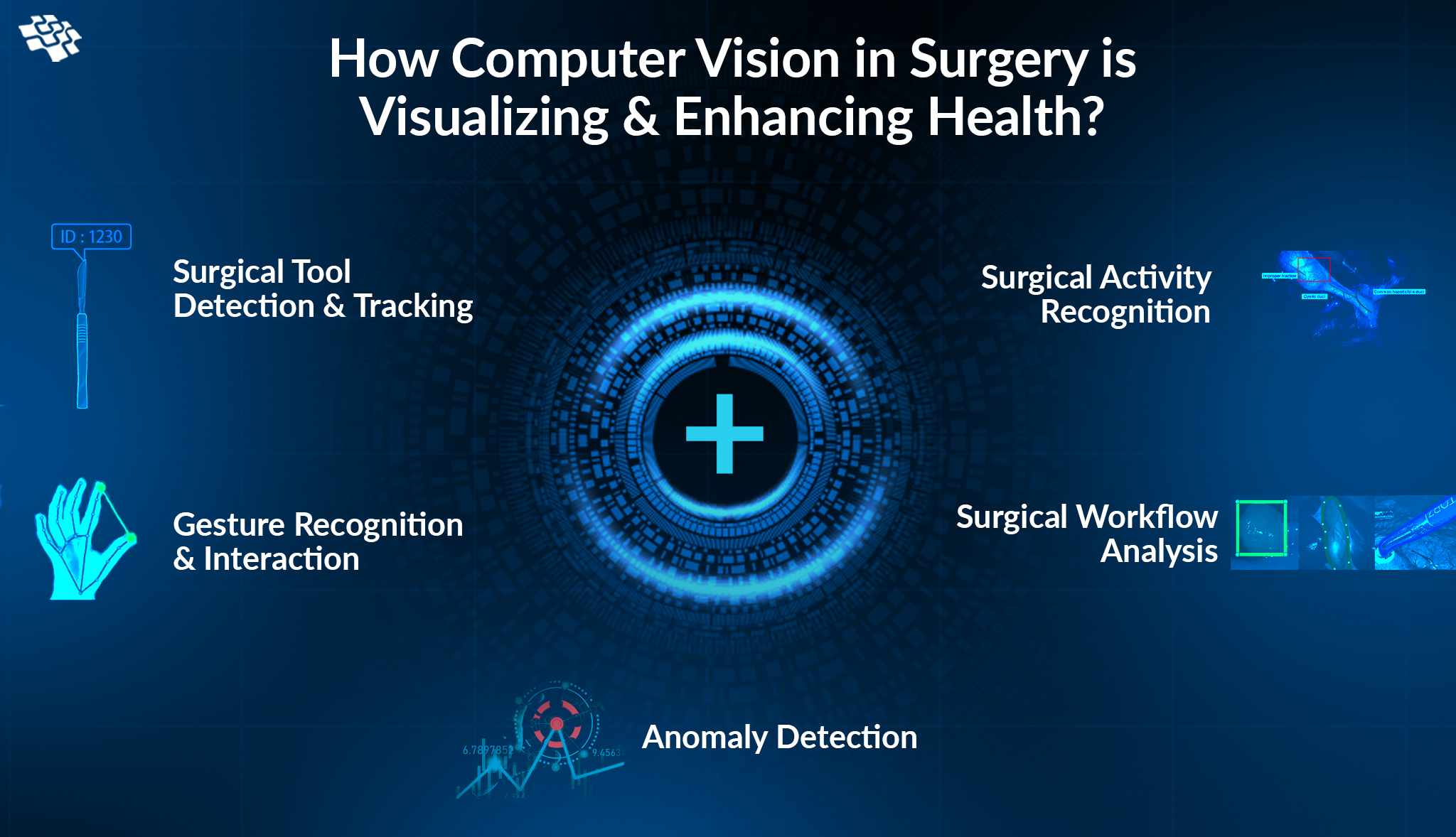
Visualizing Health with the Power of CV in Surgery!
Computer vision in surgery leverages fiber optic cameras and robots as essential tools for surgeries, especially in the era of minimally invasive procedures. These instruments, coupled with computer vision algorithms employing artificial intelligence...
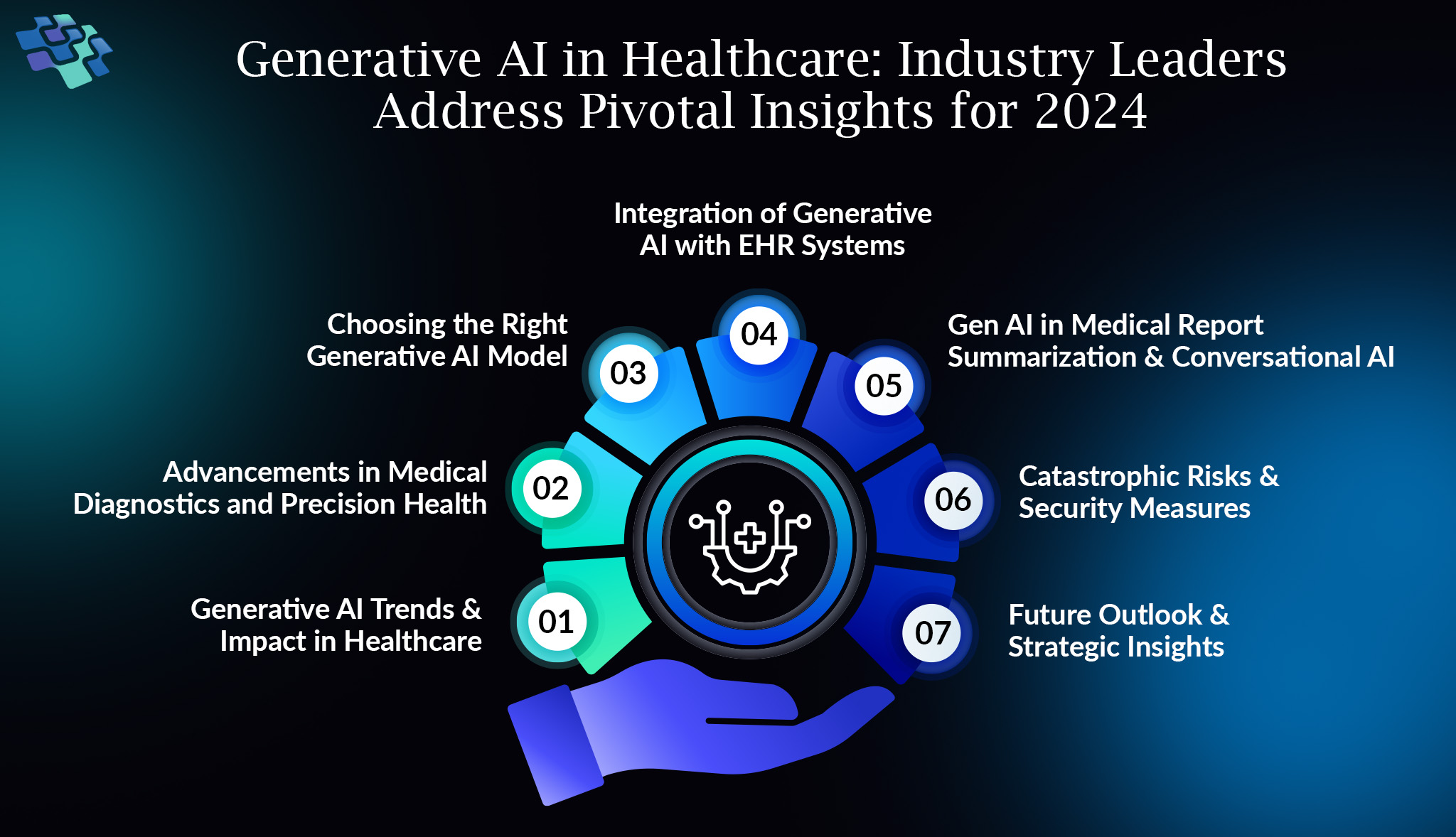
Generative AI in Healthcare: Reshaping Health Dynamics
Deepak Mittal, CEO and Founder of NextGen Invent, and Partha Anbil, Advisor at NextGen Invent, conducted an insightful interview on the transformative impact of Generative AI in healthcare for 2024. Partha is a long-time Life Sciences...
Stay In the Know
Get Latest updates and industry insights every month.
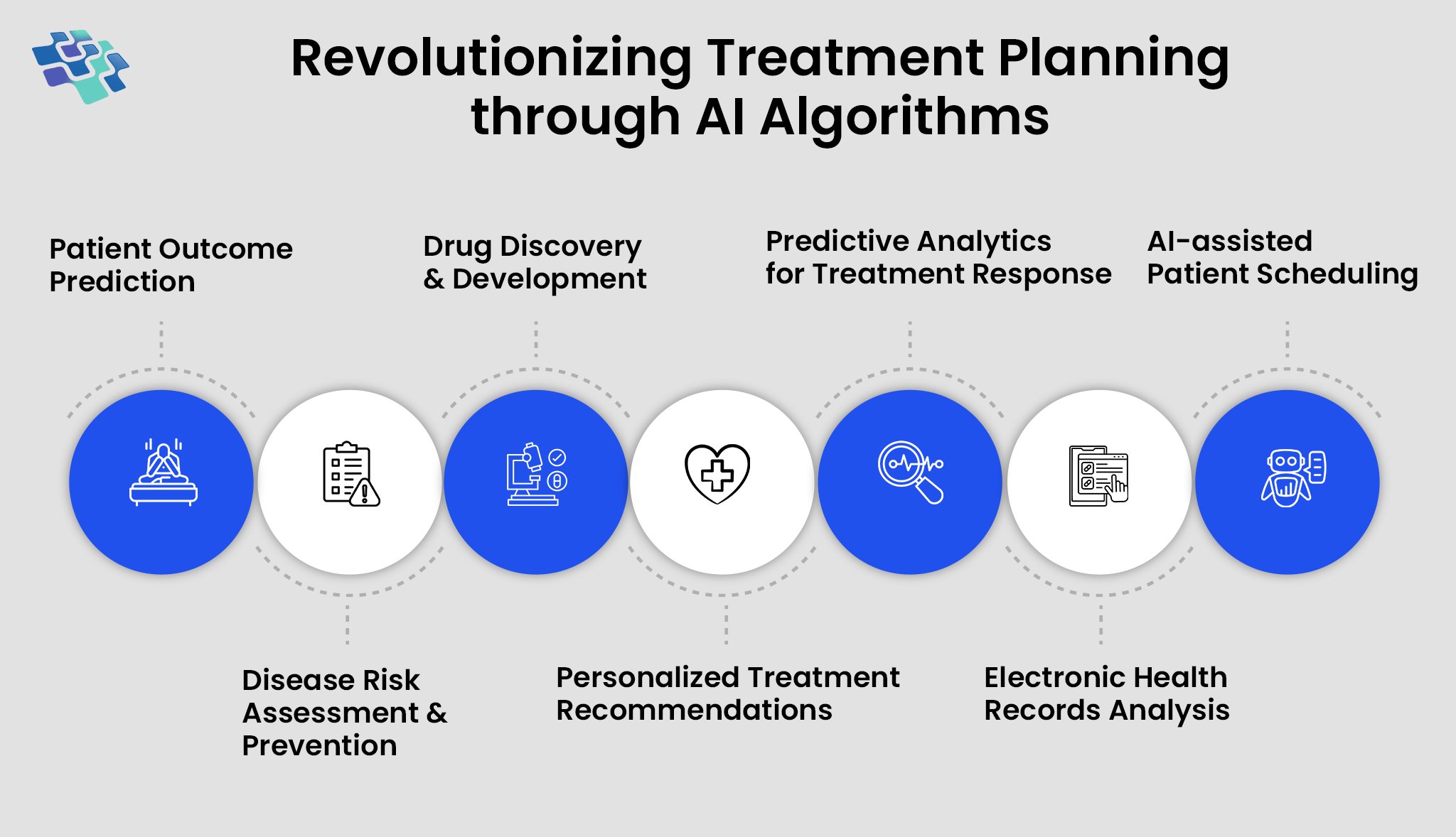 1. Patient Outcome Prediction
1. Patient Outcome Prediction